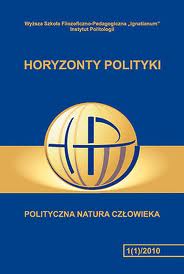Grecka tragedia, tragiczność a polityka
Greek Tragedy, the Tragic, and Politics
Author(s): Tomasz ŻyroSubject(s): Politics / Political Sciences
Published by: Uniwersytet Ignatianum w Krakowie
Keywords: greek drama; tragedy; nature; law; sophists
Summary/Abstract: This essay focuses on a proto-political reflection that emerged in Athens in the middle of 5th Century B.C. The intellectual context is clear and picturesque due to sophists’ activity, but also to the three generations of Greek dramatists. As a point of departure for considering origins of the political anthropology the Sophocles’ Antigone was used. It is worth remarking that it was an age of earnest optimism and of serious thinking. It was the age of Man, as some scholars are inclined to term. Athenians’ success in both military and naval warfare against the Persians at the beginning of the century (491-479 B.C.) was momentous. It provided apparently certain proof that the free institutions of the Athenian polis were superior to any other kind of political organization. It also gave impetus for intellectual debates in Athens in which “sophistoi” and poets were taking essential part. The very important role in debates accrues to dramatists. Whereas Aeschylus’ fame as a thinker, apart from his poetic and dramatic fame, must always rest more on his theology than on his political ideas, which centre round a poet's conception of dike and a belief that Zeus will punish the wicked and not allow the righteous to perish, Sophocles’ fame rests upon his interest in political issues. Before the time of the analysis and synthesis, the classification and imaginary construction of the various possible forms of constitution for a polis was to become one of the chief concerns of Greek political philosophers, Sophocles offered a very interesting discussion on origins of the state and “nature” of citizenship. His drama follows the most intricate debate in 5th century B.C. concerning relationships between the “nature” (physis) and “laws” (nomoi). The essay ends with some conclusive remarks on further changes in treating the subject. As a point of references useful are St. Paul’s reflections, that overcame the realm of “nature” by introducing a concept of grace in understanding of man’s destiny, as well as Hobbes’ preliminary disquisitions on the nature of man, that opened a chasm signifying the coming of modernity.
Journal: Horyzonty Polityki
- Issue Year: 1/2010
- Issue No: 01
- Page Range: 63-90
- Page Count: 28
- Language: Polish

